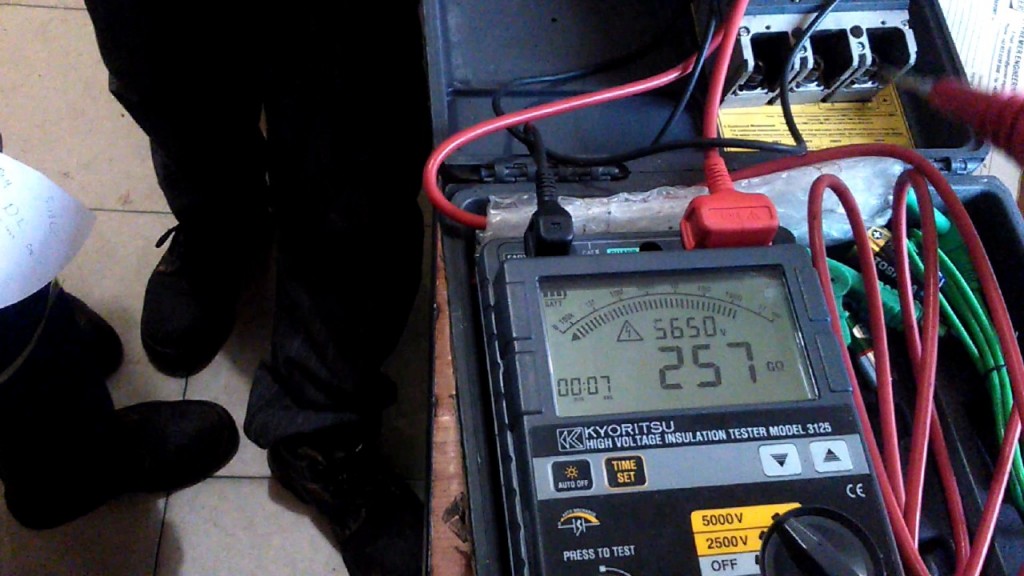A high-voltage insulation tester is a piece of equipment used to reliably and effectively test the operation of virtually any piece of electrical equipment to ensure proper and safe operation. But with so many different types of testers nowadays, picking the right one can be quite hard. Personally, I've not used all that many, and the one I currently have, the 3125A Kyoritsu, has been serving me well for a couple of years now. That being said, I'll try to provide you with all the information you need to know before you purchase your first tester.
First and foremost, you need to make a list of the equipment you'll be frequently testing. Write down the equipment's nominal voltage ratings that you'll easily find on the nameplate, and write down the number of insulation resistance tests that you intend on performing on a yearly basis. The equipment's nominal voltage will help you determine the test voltage required by the tester. My 3125A Kyoritsu is rated at 5kV, meaning it can test the insulation resistance of equipment that outputs up to 5 000V.
Further, you need to consider the features of the tester, but to the inexperienced person, some features may matter much more than others, simply because a test instrument is only as good as the experience and knowledge of the operator using it. If your application needs and experience are limited, you should consider a simple, basic tester. However, learning how to use an insulation tester doesn't have to be extensive. They usually come with a manual to help teach you how to properly and safely use one.
And lastly, safety is incredibly important. Due to the fact that insulation testers produce significant voltages, they should never be connected to an energised circuit. Their high output can completely ruin electronic circuits, so you should never connect them to electronic power supply devices, UPS systems, PLCs, battery chargers, VSDs, etc. Some testers feature a warning system that lets the operator know when there's voltage on a circuit.
Like every other test tool, the tester you buy should be rated for the application and environment in which it's going to be used. Insulation can hold a large voltage charge for quite some time after the test is complete, and while most testers automatically discharge the insulation after they've completed the test, some models won't. This is important to consider when shopping, because if you pick a model that doesn't instantly discharge the voltage, you'll have to wait a while before disconnecting it from the circuit or component that's being tested.
Further, you need to consider the features of the tester, but to the inexperienced person, some features may matter much more than others, simply because a test instrument is only as good as the experience and knowledge of the operator using it. If your application needs and experience are limited, you should consider a simple, basic tester. However, learning how to use an insulation tester doesn't have to be extensive. They usually come with a manual to help teach you how to properly and safely use one.
And lastly, safety is incredibly important. Due to the fact that insulation testers produce significant voltages, they should never be connected to an energised circuit. Their high output can completely ruin electronic circuits, so you should never connect them to electronic power supply devices, UPS systems, PLCs, battery chargers, VSDs, etc. Some testers feature a warning system that lets the operator know when there's voltage on a circuit.
Like every other test tool, the tester you buy should be rated for the application and environment in which it's going to be used. Insulation can hold a large voltage charge for quite some time after the test is complete, and while most testers automatically discharge the insulation after they've completed the test, some models won't. This is important to consider when shopping, because if you pick a model that doesn't instantly discharge the voltage, you'll have to wait a while before disconnecting it from the circuit or component that's being tested.

